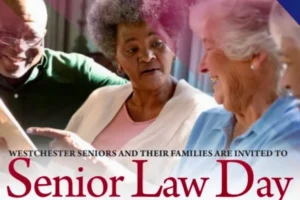My brother and I were my parent’s world. The special bond we all had was rooted in my parent’s departure from Ireland in the 1950’s, where they had both come from large families – my mother was the oldest of ten and my father was one of eight.
Their move to the United States, to try the American way, meant that both sets of grandparents, aunts, uncles and a multitude of cousins were all in Ireland (except for those who had ventured to England and Australia) and thus, not easily accessible. Granted, we went “home” just about every other year to visit, but in the meantime it was just the four of us for all the major holidays – Thanksgiving, Christmas, Easter and everything in between. Of course, we had friends, my parents were very social, but in terms of family, we were it.
And that was fine by me. It never occurred to me that we should have more people at the table. It was normal to me. We were a satellite hub, doing our own thing in New York. We were a cohesive foursome, as my mother and father acclimated to the American customs and traditions.
Everything they did was for us. They encouraged my brother and I to do our best and find our way in the world, setting the example of working hard and being kind. For every success and failure we had, they were there – sharing, advising and loving. When my brother and I found our spouses and later presented one grandchild each, my parents were over the moon. The love and attention they had showered on us was now drenching them as well!
And so this was all I knew- loving, kind, strict and supportive parents who were always at the ready to help. It was so difficult, then, to witness the subtle changes of detachment when each of them began to fail physically. I would try to buoy them up with a story about a hike my husband, daughter and I had taken but would only receive a mild nod of acknowledgement and no follow-up conversation. Then I would bring the big guns out – tell them about my daughter’s dance recital and show them some photos, surely this would be of interest and elicit a more animated response. But no, although I could tell they were happy for her and said she was beautiful, they immediately turned the conversation back to their latest doctor’s appointment or would ask if I could reach up into the closet and bring down a blanket or perform some other similar type task. Don’t get me wrong – I was happy to do it and help them, it was just difficult to acknowledge that this had become the new reality for my family.
As people get older and less independent, their worlds become smaller. Physical and mental limitations make it more difficult for them to participate in old hobbies and interests like they once did. They focus more on their immediate surroundings and day to day needs. When their children or another relative visits, their first priority often becomes asking the visitor to perform some sort of task such as changing a light bulb or getting a prescription filled.
It’s important to understand this focus on their needs doesn’t mean they love their children or grandchildren any less, far from it. They know that their child and family members are able to take care of themselves and each other 24/7 as they ago about their hectic lives. They, on the other hand, cannot be involved in their families’ lives to that extent and are now more dependent upon others for help. While it’s hard to see this shift occur, just remember it’s borne out of self-preservation and their wish to maintain some degree of independence.
In the meantime, when children do visit their parents/loved ones, make them the stars. Bring photos of them at family events, remind them of a special moment when they were the heroes. Follow their lead and let them direct the conversation. There is still so much to share, even in reminiscing, and they will be reassured to know the past is still important to their children and family, too.




